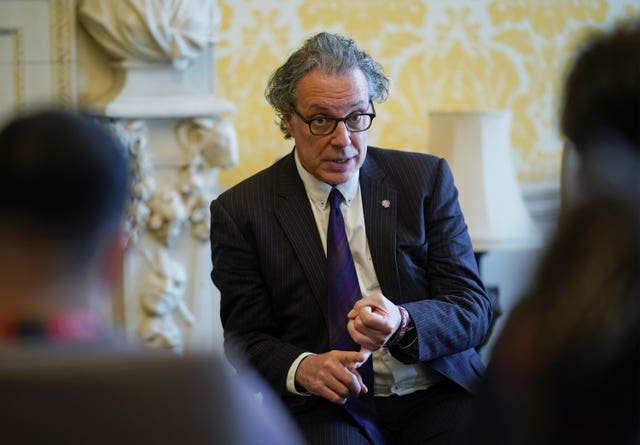
Nick Abbot 10pm - 1am
25 April 2025, 10:04

The regulator has published its final version of the Children’s Codes of practice, which firms have until July to come into line with.
Social media and other internet platforms will be legally required to block children’s access to harmful content from July or face massive fines, Ofcom has said.
The regulator has published the final version of its Children’s Codes under the Online Safety Act, setting out what sites must do to follow the law and protect children online.
Under the codes, any site which hosts pornography, or content which encourages self-harm, suicide or eating disorders must have robust age verification tools in place in order to protect children from accessing that content.
Those tools could be the use of facial age estimation technology, photo ID matching, or credit card checks to verify age more reliably.
In addition, platforms will be required to configure their algorithms to filter out harmful content from children’s feeds and recommendations, ensuring they are not sent down a rabbit hole of harmful content.
Platforms will also be required to give children more control over their online experience, including indicating what content they don’t like, as well as robust controls to block connection requests, comments and other controls.
In total, the codes set out 40 practical measures firms must meet by July in order to fulfil their duties under the Online Safety Act.
As well as fines, which can be up to £18 million or 10% of qualifying global revenue – which could reach billions of pounds for the largest firms – Ofcom will also have the power to seek a court order banning access to a site in the UK, in the most extreme cases.
Ofcom chief executive, Dame Melanie Dawes, said: “These changes are a reset for children online. They will mean safer social media feeds with less harmful and dangerous content, protections from being contacted by strangers and effective age checks on adult content.
“Ofcom has been tasked with bringing about a safer generation of children online, and if companies fail to act they will face enforcement.”
Technology Secretary Peter Kyle said the publication of the codes was a “watershed moment” after years of “exposed, poisonous environments” online.

“Growing up in the digital age should mean children can reap the immense benefits of the online world safely but in recent years too many young people have been exposed to lawless, poisonous environments online which we know can lead to real and sometimes fatal consequences. This cannot continue,” he said.
“The Children’s Safety codes should be a watershed moment – turning the tide on toxic experiences on these platforms – with the largest social media companies now having to prioritise children’s safety by law.
“This means age checks to stop children being exposed to the most extreme harmful content, as well as changes to platform design including algorithms to stop young users being served up harmful content they often aren’t even seeking.
“Like parents across the country I expect to see these laws help create a safer online world, so we set every child up for the best start in life.
“But we won’t hesitate to go further to protect our children; they are the foundation not the limit when it comes to children’s safety online.”
However, some online safety campaigners have warned that the Online Safety Act in its current form was not adequate in its protection of internet users, and in particular children, and fails to cover areas of concern.
Ian Russell, now chairman of charity the Molly Rose Foundation, set up in his daughter’s name after she chose to end her life aged 14, in 2017, after viewing harmful content on social media, said Ofcom’s codes would not protect young people.

Mr Russell urged the Prime Minister to step in and strengthen the Online Safety Act.
“I am dismayed by the lack of ambition in today’s codes. Instead of moving fast to fix things, the painful reality is that Ofcom’s measures will fail to prevent more young deaths like my daughter Molly’s,” he said.
“Ofcom’s risk averse approach is a bitter pill for bereaved parents to swallow. Their overly cautious codes put the bottom line of reckless tech companies ahead of tackling preventable harm.
“We lose at least one young life to tech-related suicide every single week in the UK which is why today’s sticking plaster approach cannot be allowed to stand.
“A speedy remedy is within reach if the Prime Minister personally intervenes to fix this broken system. Less than one in 10 parents think Ofcom is doing enough and Sir Keir Starmer must commit without delay to strengthen online safety legislation.”